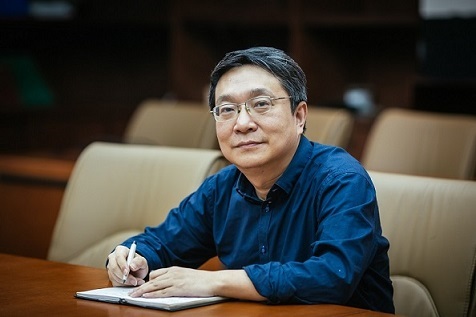

How should we see the world?
Engraved on the wall of the hallway of Ziyang Building is the school motto: Sincerity Thinking Commitment and Courage, four meaningful characters written by two great figures in Chinese history. Zhu Xi (1130 – 1200) , a philosopher who has brought Confucianism to a new level and has influenced generations of Chinese to this day, wrote the first three characters, Sincerity, Thinking, and Commitment; Lin Zexu (1785 – 1850), who was called “the first person in modern China to open eyes and see the world”, wrote the other character, Courage. To see the world is not just to open eyes, but more a challenge to one’s courage.
How should we see the world?
According to Mr Zhou Youguang (1906 – 2017), a renowned linguist, we need to observe China from an international point of view, instead of approaching the wider world from China’s perspective. His words prompt us to embrace the world in two stages. First, we need to set our steady foundation on the land of China and observe the world; then and only then can we better understand the globe as part of the global society.
How should we see the world?
There is an old story that can be interpreted in a new way. A father hoped to seek a moment of serenity from the noise of his unsettling son fidgeting some toys. To quiet down his child, the father tore a world map into shattered pieces and told him, “Son, if you want to keep on playing with your toys, you must first finish this puzzle and put back the map of the world.” To his surprise, it wasn’t long before the child brought back a complete map of the world to him. Shocked, the father asked, “How did you do that?”
“I don’t know what the world looks like, but on the back of the map is a portrait of a person and I know what that looks like, so I just put the portrait back. When the person became whole again, the world was then complete. Isn’t that how I should have solved it?”
People’s worldviews vary because of varied attitudes and prospects, but no worldview is complete without a good understanding of a whole person.

下一篇:Bridge Program